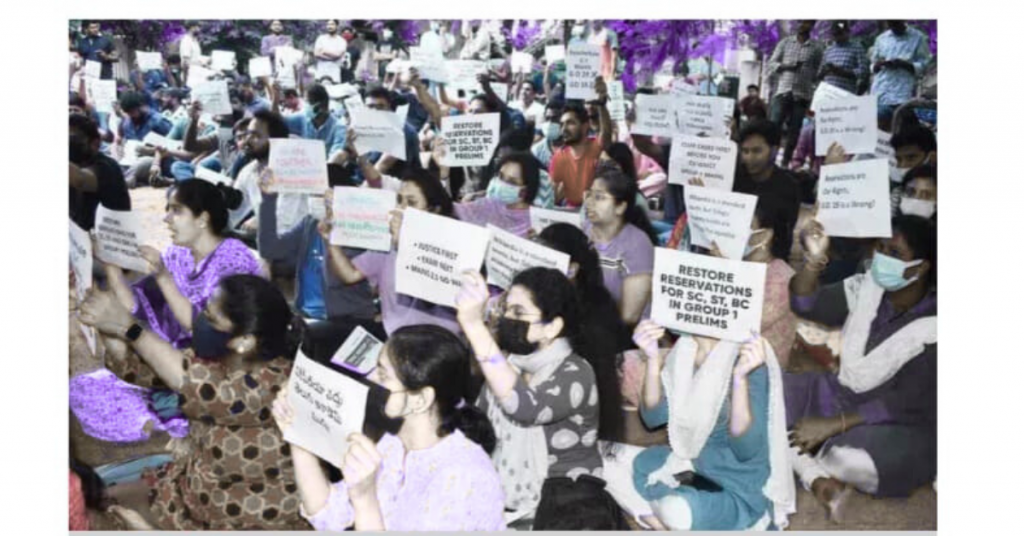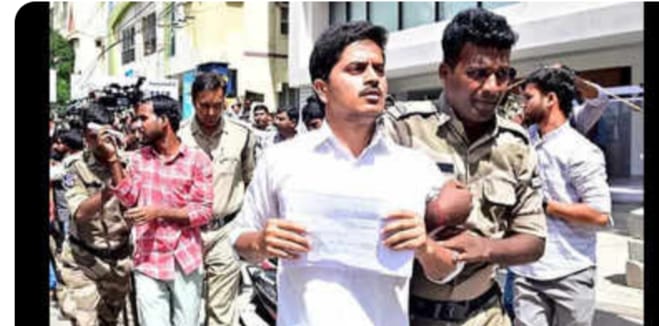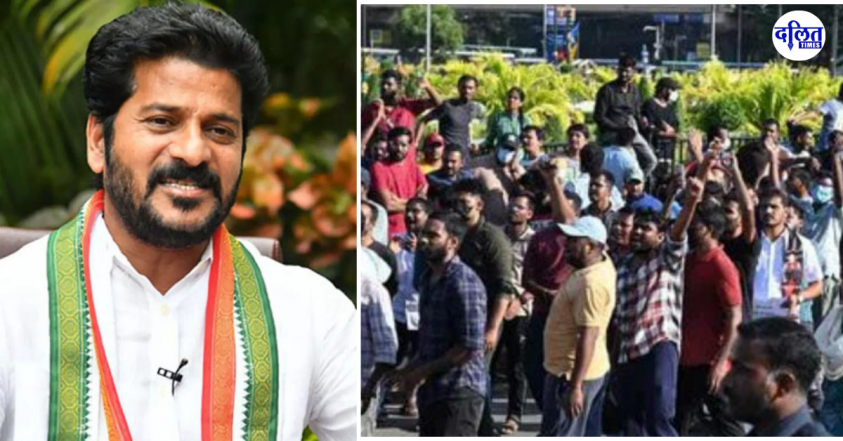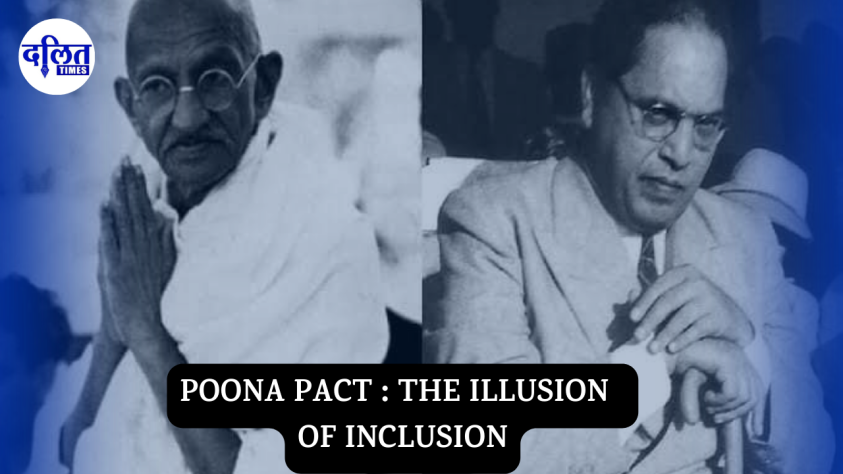The controversy surrounding the Group-I recruitment process is not new. In 2022, under the BRS government, a notification for 503 posts was released, only for the preliminary examination to be canceled due to a question paper leak.
In the heart of Hyderabad’s Ashok Nagar, a fervent outcry echoed on October 17, 2024 as Telangana’s Group-I job aspirants—many from the Scheduled Castes, Scheduled Tribes, and Backward Classes—rose in protest against a government order they believe strikes at the very core of constitutional justice. Their demand was simple yet profound: the postponement of the Group-I mains examinations scheduled for October 21 until legal clarity is achieved. But at the heart of their resistance lies something far more significant—a fierce rejection of Government Order (G.O.) 29, which they claim marginalizes and disenfranchises historically oppressed communities under the guise of procedural reform.
Also Read : https://dalittimes.in/dakshayani-velayudhan-the-trailblazer-who-redefined-social-justice/
G.O. 29, introduced in February 2024 by the Congress-led government, replaced the earlier G.O. 55 that ensured reservation was applied from the preliminary stage itself in a 1:50 selection ratio for the mains. The newer directive stripped this safeguard, leaving aspirants from reserved communities vulnerable to systemic exclusion. Despite scoring competitively, many candidates found themselves boxed into their reserved categories, unable to break into the open merit list—a move critics argue undermines both meritocracy and affirmative action. In a state that prides itself on progressivism, this administrative shift has sparked concerns about the resurgence of invisible caste barriers within public recruitment.
Frustrated and betrayed, the aspirants turned to social media, tagging Bharat Rashtra Samithi (BRS) leader K.T. Rama Rao (KTR), seeking political solidarity. KTR responded swiftly, pledging his party’s support and accusing the Congress of reneging on its electoral promise of Two lakh government jobs within a year. He vowed to stand by the students, calling out what he described as the government’s double standards and lack of commitment to social justice.

However, the aspirants’ peaceful demonstration met swift suppression. Police forces intervened, detaining the protestors and scattering the crowd. While the government claimed it was a law-and-order necessity, demonstrators condemned it as a blatant violation of their democratic right to dissent. For many, the sight of hopeful youth being hauled away by law enforcement only magnified the gravity of their struggle.
The controversy surrounding the Group-I recruitment process is not new. In 2022, under the BRS government, a notification for 503 posts was released, only for the preliminary examination to be canceled due to a question paper leak. A re-exam conducted in June 2023 was also annulled over logistical failures, including non-implementation of biometric verification. When the Congress assumed power, it issued a fresh notification with an expanded vacancy count of 563. However, the replacement of G.O. 55 with G.O. 29 reopened old wounds and triggered fresh legal challenges, intensifying an already volatile situation.
Also Read : https://dalittimes.in/tribal-youth-mathan-dragged-on-road-by-trourists-at-mananthavadi-in-kerala/
Despite the aspirants’ appeals to the Telangana Public Service Commission (TGPSC) to defer the exams until pending legal battles conclude, the Commission has opted to proceed. Meanwhile, the Telangana High Court has taken cognizance of the matter, observing that any appointments made will remain subject to the court’s final judgment. The next hearing is scheduled for November 20, casting a long shadow of uncertainty over the future of hundreds of aspirants.
The resistance to G.O. 29 transcends the immediate concern of one examination. It has become emblematic of a broader struggle for dignity, representation, and constitutional morality. For marginalized communities, Group-I services are not just jobs—they are gateways to influence, visibility, and empowerment in a system long skewed by privilege. To tamper with the mechanisms that ensure their fair entry is to strike at the foundations of India’s democratic promise.

This unfolding episode raises a fundamental question: Can administrative efficiency be prioritized over social equity? Can development be meaningful if it tramples over the aspirations of the most vulnerable? If the ideals of justice are compromised in the name of speed, what message does it send to those on the margins?
Also Read : https://dalittimes.in/p-k-rosy-the-forgotten-luminary-of-malayalam-cinema/
As Telangana strides towards ambitious goals of governance and reform, the protest at Ashok Nagar stands as a compelling reminder that growth must not come at the cost of justice. The battle waged by these aspirants is not just against an order—it is against a system that too often forgets its constitutional duty to uplift, include, and protect. Until equity becomes a non-negotiable principle in governance, the dream of a just and inclusive Telangana will remain unfulfilled.
The demand is not merely for a delayed exam. It is a cry for fairness, a plea for dignity, and a call for a future where opportunity is not determined by one’s birth, but by one’s ability and aspiration.



